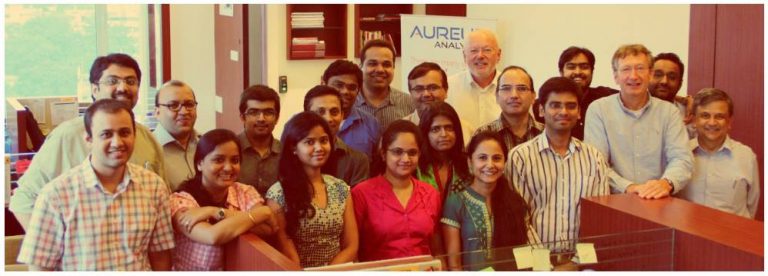Companies worldwide have woken up to AI’s potential and are busy incorporating AI into their configurations — be it on the security front, shop floors or product pipelines. AI and ML have become a fashion statement so much so that several start-ups claim AI/ML capabilities to attract investors or for bragging rights. More often than not, such claims turn out to be mere eyewash or a plot to trick investors or customers.
On the other hand, several tech start-ups come up with novel solutions to address real-world problems using AI. However, a lot of these companies have a hard time raising funds.
Analytics India Magazine caught up with venture capitalists investing in AI and emerging technologies to understand what they look for when funding an AI company, and why some companies get rejected.
Is AI a silver bullet?
Since the technology is so promising, AI is now looked at to fill every gap or solve every problem that industries face. However, when tech investors decide to fund a start-up, they look for a pervasive problem and if AI is the best solution to solve it.
“We tend to like companies that use AI to solve a pervasive problem in any traditional industry with 10x differentiated technology,” said Manish Singhal, Founding Partner at Pi Ventures – an investment company with a vision to accelerate the development of AI start-ups in India.
“We also say that we are an AI fund – but we are not looking for AI companies – what it means is that we are looking for companies which are solving large and global problems using disruptive AI. It is a means and not the end,” he added.
When deciding on funding an AI start-up, investors take a long view.
“There needs to be a real use case,” said Ninad Karpe, Partner at 100X.VC – a venture capital firm investing in AI and tech companies, “Founders with AI capabilities try to hammer any problem they can with it. There needs to be a real market – technology fit. We either see products that make life much easier for users or products that enable an option for users they didn’t have access to before.
“One should also be able to exhibit economics that works. Founders discount the costs of running ML/DL models at scale. They need to consider the same while creating a business model, pricing, and figuring out the ideal customer.”
Team composition
The credibility of the founders is an important benchmark for investors while backing a company.
“In any start-up, the founders and the team play a crucial role in the success, and investors always assess the founder’s capability from all perspectives, including their ability to build a scalable business,” said Karpe.
“Founders’ pedigree in the field is judged through three Es – Education, Experience, and Experimentation.”
At the same time, investors are also looking for a diverse team that can address challenges to start and scale an AI business.
“A good blend of tech and business expertise in the founding team could go a long way in instilling confidence in the mind of investors,” said Singhal, “The quality of initial hires and the ability to attract new talent may also help. Normally we have seen that one person in the founding team needs to have the right depth in AI to make a successful and differentiated solution.”
Is it scalable?
“Firms get rejected for funding when their scope is too small or when their solution comes with an incremental benefit, rather than a disruptive one,” said Singhal, “Companies spread too thin and try to do too much from the get-go rather than honing in on one crucial problem and expanding from there.
“The company has to be addressing a large and global problem. Sometimes, since they are disruptive, they create a new market that takes time, and the growth slows down. However, the start-ups that scale really fast are the ones that address existing markets – however, with a differentiated and disruptive solution. We call it – New Product in an Old Market.”
AI start-ups face different challenges at different stages. Hence, it is also essential to look at the right investors at the right time when looking for funding.
“At an early stage, when neither the technology is proven nor does the AI start-up have revenue or customers, it is more challenging,” said Karpe, “At this stage, the founders should look for investors and VCs who have the risk appetite to back them even at this stage. As they progress in their lifecycle, it becomes easier or more difficult to prove scalability based on actual performance.”
AI for decision-making
According to a Gartner report, over 75% of funding decisions will now be driven by AI and data analytics by 2025. But according to experts, funding decisions and the use of automation depends on the start-ups’ stage.
“At an early stage, it is very tough to make decisions based on ML/DL models – this is primarily because of a lack of data at the stage,” said Karpe.
“Supervised models would not be able to play a role here, though unsupervised and reinforcement learning models likely might. I see a clear application of machine learning in analysing market opportunities at an early stage which is currently largely driven by human effort and intuition.”
“In our opinion, in the next few years, AI can power search and discovery processes for the investors more than the funding decisions,” said Singhal, “Funding decisions for early-stage start-ups are still a gut-driven, conviction-based process. For later funding rounds, lot more data is available and hence more automation can be used.”
Wrapping up
The Covid-19 pandemic has accelerated the adoption of AI and emerging technologies. The time is ripe for start-ups to develop innovative ideas for global and pervasive problems and solve them using AI and relevant technologies.
“When COVID-19 hit, there was uncertainty on multiple fronts. Investment decisions are based on banking and betting on people, meeting entrepreneurs and seeing what they do, all very important aspects of the investment decision,” said Singhal.
“The first few months were just about everybody taking a step back and reassessing what the new normal of operations would be. People now have pent up liquidity as they weren’t investing for a few months. All that money is now actually in the market. There is a trending momentum. A lot of companies are raising money in our portfolio as well.
“The pandemic has given a 2-3 year acceleration to the adoption of AI globally. Hence there’s a great opportunity now for investing.”














































































